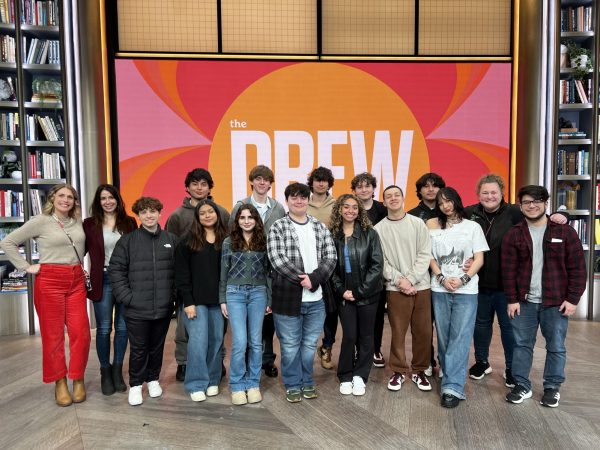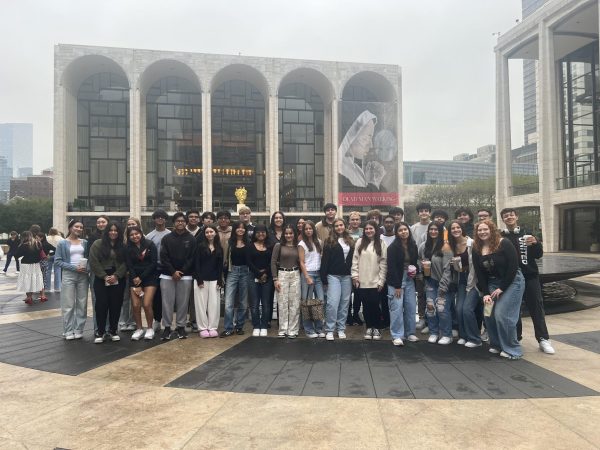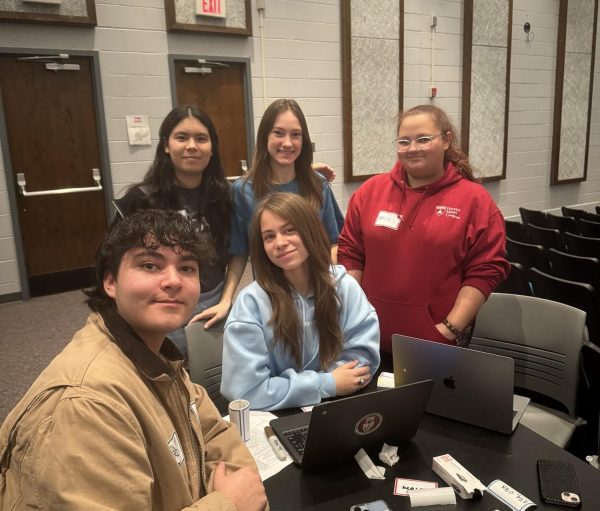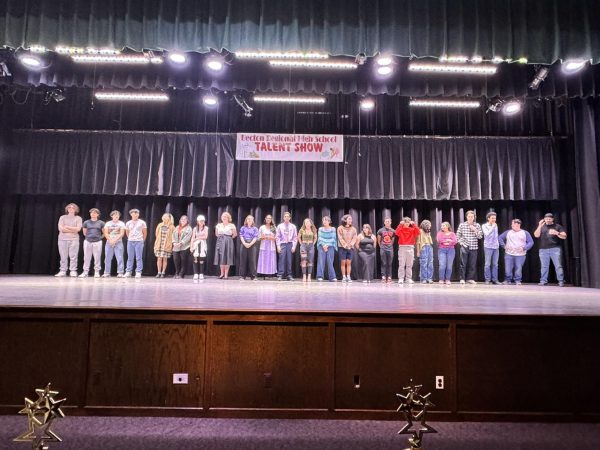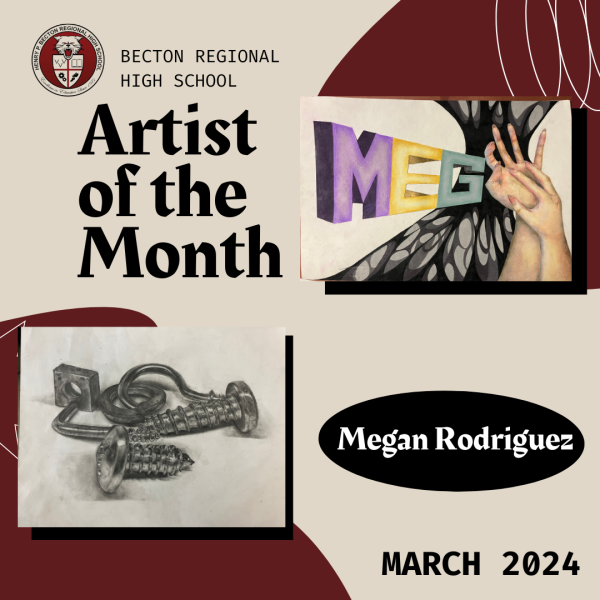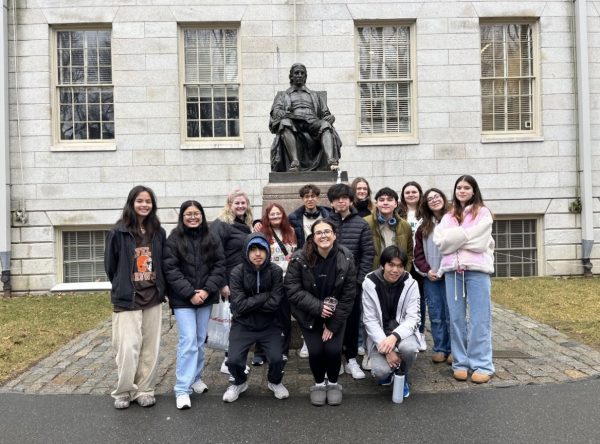Editorial: ‘What’s so wrong about a man in a dress?’: Gender Identity in the classroom and on the cover of Vogue.
Harry Styles, a former member of One Direction, received backlash after posting to Instagram pictures from a Vogue photoshoot in which he donned a black-lined ruffled dress. A vast number of internet users, like American author Candace Owens, questioned if it is appropriate for men to be wearing dresses. Ms. Owens posted a series of tweets and an almost 9-minute video, following the tweets, expressing why men should not be wearing dresses. However, Ms. Owens claims she was not speaking about Mr. Styles but that, “…he happened to be the man in the dress. It was really more of an attack on Vogue…” In response, Styles posted another picture of him in a blue ruffled suit with the caption “Bring back manly men,” a jab at Owens who tweeted this in disgust by his feminine wear in mid-November.
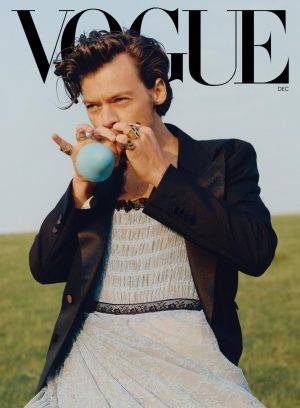
A vast number of Twitter users, including various celebrities, were quick to defend Mr. Styles on the popular social media app. Elijah Wood replied to Owens on Twitter writing, “Masculinity alone does not make a man. In fact, it’s got nothing to do with it.” Jameela Jamil, who plays Tahani on the popular series The Good Place, tweeted, “Harry Styles is plenty manly, because manly is whatever you want it to be,” also adding images of men, including those in power, from the 18th century who wore makeup, tight garments, powdered wigs, and even heels. These examples and modern-day ones regularly appeared in rebuttals to Owen’s argument, contradicting her claims. Twitter users questioned if Ms. Owens believed these important historical figures, who have accomplished great things, were not ‘manly’ enough simply because they sported what she and other conservatives consider “feminine” garments.
In a phone call, Maddison Knueppel, co-founder of the new Becton GSA Club (Gay-Straight Alliance or Gender-Sexuality Alliance), expressed her feelings on the matter of “feminine” and “masculine” clothing. Ms. Knueppel exclaimed, “Clothes don’t have a gender. I don’t know who made that up – I don’t know why they made it up… Girls are not the color pink and boys are not the color blue.” Knueppel was also very upset with people claiming that Harry Styles was the first male to dress in more feminine clothing. These people, mainly Twitter users, discredit drag queens and kings and POC celebrities, like the late musical artists, Prince, and the K-Pop band BTS, who have long been expressing themselves by dressing in what conservative-minded people consider clothes not appropriate for their gender. Furthermore, People often tie together men who dress as women and vice versa to gender dysphoria, though this is not the case for many who are expressing themselves through clothing and make-up. Knueppel defines gender dysphoria as being “born as a female, but you identify as a male…it feels weird being in the wrong body. You’re looking at yourself and you’re not seeing who you really are — you see another person’s body on you.” She added that we should be supporting those with gender dysphoria because they have to wake up every day, look in the mirror, feeling like they are facing a completely different person.
When asked why she believes the LGBTQ+ community does not receive a lot of support around the world, Knueppel claims it has to do with the way people were raised and the environment around them. However, she expresses how social media plays a key role in showing those not in the LGBTQIA+ community what it is all about, the issues they are facing, and it also helps connect those in the community so they don’t feel alone. Across the US, there are school clubs, like GSA, to help support members of the LGBTQIA+ community, and Knueppel is thankful Becton is one of those schools. Knueppel, who co-founded the club with fellow junior Sarah Burgos, describes the club as, “…a place where people of different genders, sexualities, and just anyone really can come and talk about their experiences – positive or negative ones.” Due to the pandemic, the club cannot do many in-person activities, but meetings have been held on Google Meet to large numbers of attendees. Most recently, the Becton GSA is working on a social media campaign to end hate speech in the hallways.
Allowing everyone to be themselves and to be comfortable in their bodies is extremely important. A piece of clothing does not in any way determine who you are as a person. Regardless of your identity, being an ally is an easy task. As Miss. Knueppel explained it, “Just be respectful. You don’t have to come to pride parades, you don’t need to have a pride flag, you don’t have to put that you support it in your bios. Just understand that these people have a difficult journey and could use your support.”

Aurora Marin is a senior at Becton who is flourishing with the guidance of music! Music plays an important role in Aurora’s life. Aurora appreciates...


